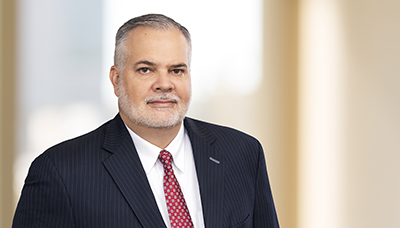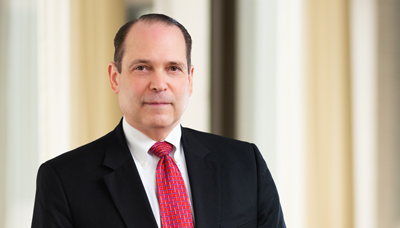The Delaware Supreme Court recently clarified when a contractual fiduciary duty imposes a subjective, rather than an objective, standard for determining the appropriateness of a fiduciary’s actions. Under Delaware law, limited liability companies and limited partnerships are allowed—subject to the strictures of Delaware’s Limited Liability Company Act (LLC Act) and its Revised Uniform Limited Partnership Act (RULPA)—to contractually modify or eliminate traditional fiduciary duties of loyalty, care, and candor. Within this context, one commonly used contractual fiduciary duty provision appears to obligate the fiduciary to act in a manner that he or she believes is in the best interests of the entity (whether limited liability company (LLC) or limited partnership (LP)). This type of provision has wildly different impact depending on whether or not it is interpreted as requiring a fiduciary to act on a reasonably-held belief or simply a subjectively-held belief that an action is in fact in the entity’s best interests.
Last week, in William Allen v. Encore Energy Partners, L.P., the Delaware Supreme Court affirmed an earlier decision by Vice Chancellor Parsons, explaining that a fiduciary’s belief that she was acting in the best interests of the LP, if unqualified by a reasonableness requirement, is held to a subjective standard. Del. Supr., C.A. No. 6379 (July 22, 2013). In other words, unless the LP or LLC agreement specifically requires the fiduciary’s belief to be “reasonable,” the fiduciary need only subjectively believe that she acted in the best interests of the entity in order to satisfy her fiduciary obligations. This is, of course, something to keep in mind when drafting an LLC or LP agreement; the lack of a “reasonableness requirement” could afford an executive protection for a decision that harms the entity and flies in the face of commonsense—as long as the executive is empty of head and pure of heart.
This objective vs. subjective distinction also has important implications for a litigator pleading a breach of a contractual fiduciary duty. To plead a breach of a subjective belief, a plaintiff must plead facts from which a court could reasonably infer that the fiduciary did not actually believe he or she was acting in the LLC’s or LP’s best interests. A plaintiff can satisfy this pleading requirement in one of two ways. First, a plaintiff can plead that the fiduciary believed he or she was acting against the LLC’s or LP’s best interests. Second, a plaintiff can plead that the fiduciary consciously disregarded his or her duty to form a subjective belief that he or she was acting in the LLC’s or LP’s best interests. Each option is difficult to satisfy. As a result, courts frequently dismiss cases in which the fiduciary’s subjective belief is at issue.
In sum, both corporate lawyers and litigators need to pay close attention to the distinction between a subjective and an objective belief when analyzing fiduciary duties in connection with an LLC or LP agreement. In most situations, the rights, obligations, and interpretations so familiar from Delaware corporate law are not automatically applicable to the parties to an LLC or LP. If a party wants to import some aspect of Delaware corporate law, it certainly can. But these desired aspects of Delaware corporate law must be specifically provided in the relevant LLC or LP agreements. A party representing a fiduciary in a transaction will want to incorporate a subjective standard; a party concerned about keeping some control over the actions of corporate fiduciaries will prefer the objective standard that comes with a “reasonableness requirement.” Likewise, a litigator faced with the subjective standard may want to advise his or her client that, absent very compelling evidence, it will be extremely difficult to successfully plead a breach of fiduciary duty claim.
To obtain more information, please contact the Barnes & Thornburg attorney with whom you work, or a leader of the firm’s Financial, Corporate Governance and M&A Litigation group in the following offices: Trace Schmeltz, co-chair, 312-214-4830; Anne DePrez, co-chair, 317-231-7264; Brian Casey, South Bend, 574-237-1285; Kevin Rising, Los Angeles, 310-284-3888; David Powlen, Delaware, 302-300-3435; Kevin McDermott, 614-628-1425; and Tom Gallo, Atlanta, 404-264-4053.
© 2013 Barnes & Thornburg LLP. All Rights Reserved. This page, and all information on it, is proprietary and the property of Barnes & Thornburg LLP. It may not be reproduced, in any form, without the express written consent of Barnes & Thornburg LLP.
This Barnes & Thornburg LLP publication should not be construed as legal advice or legal opinion on any specific facts or circumstances. The contents are intended for general informational purposes only, and you are urged to consult your own lawyer on any specific legal questions you may have concerning your situation.
















/Passle/6488d4630e7e25c9ac9f834a/SearchServiceImages/2024-11-14-13-11-27-495-6735f6fff42d6cc59c8ec5c1.jpg)
/Passle/6488d4630e7e25c9ac9f834a/SearchServiceImages/2024-11-11-22-02-38-042-67327efe31216b909e6ea644.jpg)
